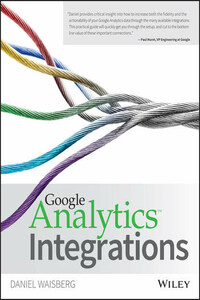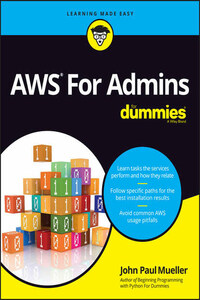Thousands of years ago, our ancestors understood the power of weaving flax fibers in a way that would turn long, disparate threads into cohesive pieces of cloth that could be used to warm and protect them. The process has changed along the years; we now have large and complex machines to do the work for us. The main principle is still very similar: A series of parallel threads (warps) is interwoven by another thread (weft) and pressed together.
This book similarly shows that Google Analytics can work very effectively as the weft that interweaves all your data sources, bringing them together as a whole in a cohesive data platform. Very often, you find data all over a company, but data sources run separate from one another, parallel as the warps in a loom, and integrating them may seem like an impossible endeavor. But it shouldn't be like that; all your data should be as tightly integrated as pieces of cloth.
The word integration comes from the Latin word integratus, past participle of integrare, which means to “make whole.” In that sense, we can define integration as the process of bringing together parts or elements and combining them into a whole. When it comes to the world of data, integration means combining all the data you have about one entity (a user, a campaign, a product, and so on) in a single place.
Using Google Analytics, you can integrate data from other Google products to be viewed alongside its reports; you can also integrate other sources of data through custom integrations (provided that you have a key to join them together). This means that instead of having to analyze data using several different tools, you have the power to centralize all relevant information into Google Analytics to make data analysis easier and quicker. Analyzing data generated by different products in one central place will also result in more meaningful and actionable analyses.
Many professionals are still analyzing only a single part of their users' interactions with their digital properties. They can't see all the factors (and data) that affect their business, online and offline. This happens mainly because data is scattered over multiple tracking tools, making it hard for professionals to integrate all sources of information in one place. As you will learn in this book, Google Analytics is an extremely good candidate for creating an analytics platform that will centralize the most essential pieces of information for anyone working online.
In summary, this book is a hands-on guide focusing on one very important thing, which I personally believe to be critical for success: integrating all your data into Google Analytics so that you can have a full picture of your marketing efforts and your users' behavior. This quote from a research paper by Econsultancy is clear and to the point (see http://goo.gl/VFFHKD):
“Integrating additional data into your web analytics provides a more complete vision of the entire marketing funnel. Your capability instantly expands from counting site traffic into a broader system that measures your effectiveness in advertising, sales online and offline, product usage, support, and retention.”
Who Needs Google Analytics?
To put it simply: every business on the Web! While this might sound like an exaggeration, very few professionals would disagree with the claim that Web Analytics is essential to succeed in the digital world. Google Analytics is a robust and comprehensive solution, which can be implemented to answer the needs of small bloggers, larger-scale websites, and mobile apps.
While large enterprises typically employ analysts and experienced online marketers, small businesses usually have Google Analytics implemented by a Jack-of-all-trades. So even though this book includes technical terms, I have attempted to explain the subject in a clear and down-to-earth manner, with screenshots that support the written explanations. Hopefully, both experts and occasional Google Analytics users can learn from the tips and tricks presented here.
Who Should Read This Book?
One of the important advantages of Google Analytics over other analytics solutions is the large and active user community on the Web, from forums to blogs to social networks. There is a vast amount of information on how to use and troubleshoot the tool. The aforementioned comes in addition to the official Google channels: Help Centers, Developer Documentation, Analytics Academy, and social channels. (See the links in the sidebar at the end of this section).
With that in mind, you might be asking yourself, “Why do I need this book?” That's a great question; thanks for asking!
Basically, this book centralizes everything you need to know about integrating data into Google Analytics, with detailed explanations and screenshots to guide you through this journey. In addition, the book is full of tips and tricks I've learned from many years of hands-on experience (I had a website running Google Analytics a month after it was launched in 2005!). So while some of the information will be available online, you will learn quite a few new tricks from this book!








